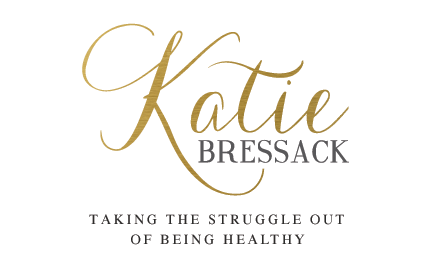What Every New Mom Should Know About Thyroid Health
I was first diagnosed with hypothyroidism after a miscarriage almost seven years ago, but I’m pretty sure I’ve had thyroid issues my entire life. I’ve often felt cold to the point of wearing socks to bed in the middle of the summer, struggled with insomnia and had difficulty coping with stress. After my diagnosis, I’ve worked with both an endocrinologist and a naturopathic doctor to help get my thyroid into an optimal place in order to become and stay pregnant, have a healthy pregnancy and feel supported during postpartum. I’m passionate about passing this information along so I’m sharing today what every new mom should know about their thyroid health.
POSTPARTUM CARE
I always encourage my clients to talk to their doctors about their postpartum thyroid health, as I believe it should be a part of the six week post checkup after having a baby, rather than the “what birth control do you want to start taking,” and “you are all clear to have sex again” conversation. I had just had twins via cesarean, so trust me, sex was the furthest thing from my mind as I was still struggling to walk without pain.
I will soon be sharing another blog post about postpartum care and the importance of working with a pelvic floor therapist, so just a quick reminder that it’s important to get checked out by a pelvic floor therapist around six weeks postpartum. They will check for diastasis recti along with prolapse, incontinence, back pain or any postpartum injuries and recommend specific movement sequence and postural awareness to help you reconnect your core and pelvic floor. If you’ve had a cesarean birth, they can also massage your scar to help with healing and help prevent scar tissue and pelvic floor issues. Traditionally OBGYN’s are not trained with this information and it can be life changing for new moms.

Having a conversation about your thyroid health with your doctor before giving birth (and especially during the six week check in) can be helpful so you have a plan in place just in case you start to feel off. As a new mom you will be exhausted, BUT there is a huge difference between feeling exhausted and sleep deprived compared to feeling like you’ve been hit by a truck, not producing enough breast milk (hypothyroidism can affect your milk supply) or just not having any energy at all.
If you are feeling even one of these symptoms, call your doctor and request to have them run a full thyroid panel, TSH, Free T4, Free T3, and your thyroid antibodies (TPO and Anti-thyroglobulin antibody), along with your Vitamin D, Vitamin B-12 and iron/ferritin levels. Plus any other blood work that they suggest. I hate doing blood work, I almost pass out every time I have to do this, so it’s ironic that I have to do this every 6-12 weeks depending on how I’m feeling. Check out my blog post all about hormone testing, which ones to test and why.
I’m so grateful I had a plan in place with my doctor, because I needed her to be on the same page with me and share different things to pay attention to with my postpartum care.
About five months into being postpartum I started waking up in the middle of the night around 3a.m. feeling wired. I could not go back to sleep and was the only person awake in the house which was super frustrating! This is usually a sign that I need to modify my thyroid medication, but this time my milk supply also went down, and I went back to being freezing cold sleeping in socks and sweats while anxiety came creeping back. The anxiety part is always hard to figure out, is it being a new mom to twins, was it 2020 or my thyroid? Honestly it was all three and all signs pointed to my thyroid being off.
I called my endocrinologist, went in to get my blood work done, and my TSH was completely off. I had it checked at my six week postpartum appointment and then again at three months postpartum. My TSH went from a .07 to a 37 in just two months and my doctor said that I was experiencing postpartum thyroiditis, which affects about five percent of women during the first year of postpartum and is more common with women who have a history of thyroid conditions or type one diabetes.
Postpartum thyroiditis is when you go back and forth between having hypothyroidism (under active thyroid) and hyperthyroidism (over active thyroid). It took me a few weeks for my medication to make a big difference and I think I’m on the right dosage for now, I go back in two weeks for more blood work.
Here is some additional info on how hypothyroidism and hyperthyroidism can show up. You can imagine how utterly exhausting it is for your body to be going up and down between these two extremes. I was experiencing the anxiety, had issues with sleeping and noticed a decreased milk supply and sensitivity to cold, all of which are symptoms of hypothyroidism.
HYPER VS. HYPOTHYROIDISM
Hyperthyroidism
- Anxiety, irritability and nervousness
- Rapid heartbeat and palpitations
- Hungry all the time
- Extreme weight loss
- Hot, lots of sweating
- Having a hard time sleeping
- Extreme fatigue
- Frequent or loose stools
Hypothyroidism
- Exhaustion, no energy whatsoever
- Depression
- Decreased milk supply
- Weight gain
- Constipation
- Increased sensitivity to cold, time to wear socks to bed again
- Heavier than normal periods
- Dry or brittle hair and nails
- More than just postpartum hair loss
- High cholesterol
Before I find out my latest test results, I’ve been laser focused on a few things. The first is going to bed on time. This has always been challenging for me so I’ve been going to bed no later than 10, honestly some nights are better than other nights but I’m trying. I’ve also been eating to support my hormones, keeping the gluten away, focusing on regulating my blood sugar levels daily, eating lots of healthy proteins and managing and coping with stress as much as possible. Lots of fresh air and walks have been good for my soul.
SEEK ANSWERS
If you are a new mom or know a new mom who has been feeling exhausted, moody and anxious please share this with her and get the postpartum support you both deserve. Schedule a call with your doctor and discuss your need to check your thyroid levels, it’s a step that shouldn’t be skipped and one that I wish all doctors paid closer attention to. Also, postpartum is just not the first three months after having a baby, it’s for life, so always request blood work when you are not feeling like yourself. Remember, it’s always important to be your own health advocate.
I’d love to hear your thoughts!
- Was this post helpful for you? Or, do you have any additional questions? Comment below and let me know!
- Share with your friends, forward this along or post on social. You can also join me on Instagram and in my private FB group
- Want a deeper look into your hormones? Take my quiz to see what foods might be helpful to add into your diet
- Sign up for my newsletter full of women’s health tips and get your FREE guide, the five steps to take today to help balance your hormones
Medical Disclaimer
Information in this post and on this web site is provided for informational purposes only. The information is a result of practice experience and research by the author. This information is not intended as a substitute for the advice provided by your physician or other healthcare professional or any information contained on or in any product label or packaging. Do not use the information on this web site for diagnosing or treating a health problem or disease, or prescribing medication or other treatment. Information and statements regarding dietary supplements have not been evaluated by the Food and Drug Administration and are not intended to diagnose, treat, cure, or prevent any disease. Always speak with your physician or other healthcare professional before taking any medication or nutritional, herbal or homeopathic supplement, or using any treatment for a health problem.

.png)
.png)
.png)